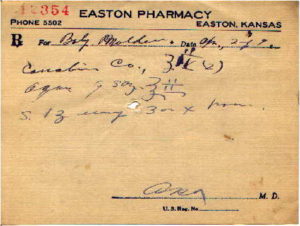The Future of Physician Prescribing: An Historical Perspective
Posted on | November 11, 2016 | Comments Off on The Future of Physician Prescribing: An Historical Perspective

Mike Magee
The right to prescribe medicines has been a privilege granted by our society with near exclusivity to physicians. It has been actively protected from encroachment by physician organizations usually on the basis that the physicians education and training is clearly superior to others and translates into better prescribing decisions. This privilege has also been actively supported by the pharmaceutical industry which has drawn comfort from tort law’s identification of the physician as a “learned intermediary”, a designation which provides some measure of liability protection from mishaps that occur in the use of their products. But as the recent issues surrounding the Oxycontin led opioid addiction and the Adderall led explosion of treatment of children and adults for ADHD reveal, the system is highly vulnerable to collusion, fraud and abuse.
When, how, and why were physicians granted the sole right to prescribe in America?
Part I: Stemming The Tide of Addictive Narcotics in the 19th Century
Part II: Prescription vs. Over-The-Counter (OTC) Drugs
Part III: The “Learned Intermediary” and Direct-To-Consumer (DTC) Advertsing
Tags: adderall > adhd over diagnosis > dtc advertising > FDA > fda law > History of Prescription > learned intermediart > legal medicine > medical legal issues > medical thought leaders > medical-industrial complex > opioid addiction > oxycontin > physician industry collusion > physician prescribing > physician privilege > quality of prescriptions


